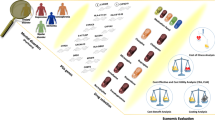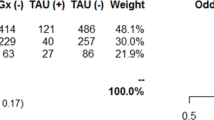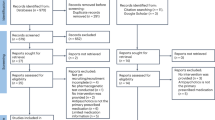Abstract
Substantial inter-individual discrepancies exist in both therapeutic effectiveness and adverse effects of antidepressant and antipsychotic medications, which can, in part, be explained by genetic variation. Here, we searched the Pharmacogenomics Knowledge Base for gene-antidepressant and gene-antipsychotic pairs with the highest level of evidence. We then extracted and compared the associated prescribing recommendations for these pairs developed by the Clinical Pharmacogenomics Implementation Consortium, the Dutch Pharmacogenetics Working Group or approved product labels in the US, Canada, Europe, and Asia. Finally, we highlight key economical, educational, regulatory, and ethical issues that, if not appropriately considered, can hinder the implementation of these recommendations in clinical practice. Our review indicates that evidence-based guidelines are available to assist with the implementation of pharmacogenetic-guided antidepressant and antipsychotic prescribing, although the maximum impact of these guidelines on patient care will not be realized until key barriers are minimized or eliminated.
This is a preview of subscription content, access via your institution
Access options
Subscribe to this journal
Receive 12 print issues and online access
$259.00 per year
only $21.58 per issue
Buy this article
- Purchase on Springer Link
- Instant access to full article PDF
Prices may be subject to local taxes which are calculated during checkout


Similar content being viewed by others
References
Walden LM, Brandl EJ, Changasi A, Sturgess JE, Soibel A, Notario JFD, et al. Physicians’ opinions following pharmacogenetic testing for psychotropic medication. Psychiatry Res. 2015;229:913–8.
Stanek EJ, Sanders CL, Taber KAJ, Khalid M, Patel A, Verbrugge RR, et al. Adoption of pharmacogenomic testing by US physicians: results of a nationwide survey. Clin Pharm Ther. 2012;91:450–8.
Haga SB, O’Daniel JM, Tindall GM, Lipkus IR, Agans R. Survey of US public attitudes toward pharmacogenetic testing. Pharmacogenomics J. 2012;12:197–204.
McKillip RP, Borden BA, Galecki P, Ham SA, Patrick-Miller L, Hall JP, et al. Patient perceptions of care as influenced by a large institutional pharmacogenomic implementation program. Clin Pharm Ther. 2017;102:106–14.
Müller DJ, Rizhanovsky Z. From the origins of pharmacogenetics to first applications in psychiatry. Pharmacopsychiatry. 2020;53:155–61.
Thorn CF, Klein TE, Altman RB, Pharm GKB. In: Innocenti F, editor. Pharmacogenomics: Methods and Protocols. Totowa, NJ: Humana Press; 2005. p. 179–91.
Prioritization. https://cpicpgx.org/prioritization/. Accessed 26 November 2020.
Pharmacogenetics. 2018. https://www.knmp.nl/patientenzorg/medicatiebewaking/farmacogenetica/pharmacogenetics-1/pharmacogenetics. Accessed 20 April 2021.
Clinical annotation levels of evidence. https://www.pharmgkb.org/page/clinAnnLevels. Accessed 26 July 2021.
Whirl-Carrillo M, Huddart R, Gong L, Sangkuhl K, Thorn CF, Whaley R, et al. An evidence-based framework for evaluating pharmacogenomics knowledge for personalized medicine. Clin Pharmacol Ther. 2021;110:563–72.
Rosenblat JD, Lee Y, McIntyre RS. Does pharmacogenomic testing improve clinical outcomes for major depressive disorder? a systematic review of clinical trials and cost-effectiveness studies. J Clin Psychiatry. 2017;78:720–9.
Rosenblat JD, Lee Y, McIntyre RS. The effect of pharmacogenomic testing on response and remission rates in the acute treatment of major depressive disorder: a meta-analysis. J Affect Disord. 2018;241:484–91.
Greden JF, Parikh SV, Rothschild AJ, Thase ME, Dunlop BW, DeBattista C, et al. Impact of pharmacogenomics on clinical outcomes in major depressive disorder in the GUIDED trial: a large, patient- and rater-blinded, randomized, controlled study. J Psychiatr Res. 2019;111:59–67.
Pérez V, Salavert A, Espadaler J, Tuson M, Saiz-Ruiz J, Sáez-Navarro C, et al. Efficacy of prospective pharmacogenetic testing in the treatment of major depressive disorder: results of a randomized, double-blind clinical trial. BMC Psychiatry. 2017;17:250.
Bousman CA, Arandjelovic K, Mancuso SG, Eyre HA, Dunlop BW. Pharmacogenetic tests and depressive symptom remission: a meta-analysis of randomized controlled trials. Pharmacogenomics. 2019;20:37–47.
Hicks JK, Sangkuhl K, Swen JJ, Ellingrod VL, Müller DJ, Shimoda K, et al. Clinical Pharmacogenetics Implementation Consortium (CPIC) guideline for CYP2D6 and CYP2C19 genotypes and dosing of tricyclic antidepressants: 2016 update. Clin Pharm Ther. 2017;102:37–44.
Hicks JK, Bishop JR, Sangkuhl K, Muller DJ, Ji Y, Leckband SG, et al. Clinical Pharmacogenetics Implementation Consortium (CPIC) guideline for CYP2D6 and CYP2C19 genotypes and dosing of selective serotonin reuptake inhibitors. Clin Pharm Ther. 2015;98:127–34.
Bank PCD, Caudle KE, Swen JJ, Gammal RS, Whirl-Carrillo M, Klein TE, et al. Comparison of the guidelines of the Clinical Pharmacogenetics Implementation Consortium and the Dutch Pharmacogenetics Working Group. Clin Pharm Ther. 2017;103:599–618.
Abdullah-Koolmees H, van Keulen A, Nijenhuis M, Deneer V. Pharmacogenetics guidelines: overview and comparison of the DPWG, CPIC, CPNDS, and RNPGx guidelines. Front Pharm. 2021;11:595219.
Endorsements. https://cpicpgx.org/endorsements/. Accessed 26 July 2021.
Statement of support for the use of European pharmacogenomic guidelines [Internet]. Ubiquitous Pharmacogenomics Project; 2021. https://upgx.eu/wp-content/uploads/2018/09/Statement-of-support-Horizon-2020-U-PGx-final-sep-2018.pdf. Accessed 27 July 2021.
Hornberger J, Li Q, Quinn B. Cost-effectiveness of combinatorial pharmacogenomic testing for treatment-resistant major depressive disorder patients. Am J Manag Care. 2015;21:e357–65.
Maciel A, Cullors A, Lukowiak AA, Garces J. Estimating cost savings of pharmacogenetic testing for depression in real-world clinical settings. Neuropsychiatr Dis Treat. 2018;14:225–30.
Brown LC, Lorenz RA, Li J, Dechairo BM. Economic utility: combinatorial pharmacogenomics and medication cost savings for mental health care in a primary care setting. Clin Ther. 2017;39:592–602.e1.
Verbelen M, Weale ME, Lewis CM. Cost-effectiveness of pharmacogenetic-guided treatment: are we there yet? Pharmacogenomics J. 2017;17:395–402.
United Healthcare. Pharmacogenetic testing. 2020. https://www.uhcprovider.com/content/dam/provider/docs/public/policies/comm-medical-drug/pharmacogenetic-testing.pdf. Accessed 21 April 2021.
Centers for Medicare and Medicaid Services. Local coverage determination (LCD): MolDX: pharmacogenomics testing (L38294). 2020. https://www.cms.gov/medicare-coverage-database/details/lcd-details.aspx?LCDId=38294&ver=16. Accessed 21 April 2021.
Anderson HD, Crooks KR, Kao DP, Aquilante CL. The landscape of pharmacogenetic testing in a US managed care population. Genet Med. 2020;22:1247–53.
Heitz D. Medicare now covers genetic tests for targeting depression drugs. Healthline Media. 2014. https://www.healthline.com/health-news/medicare-now-covers-genetic-tests-for-depression-drugs-111814. Accessed 20 November 2020.
Proposed Local Coverage Determination (LCD): Pharmacogenomics Testing (DL39063). Centers for Medicare & Medicaid Services; 2021.
L Rogers S, Keeling NJ, Giri J, Gonzaludo N, Jones JS, Glogowski E, et al. PARC report: a health-systems focus on reimbursement and patient access to pharmacogenomics testing. Pharmacogenomics. 2020;21:785–96.
Regulation of genetic tests. https://www.genome.gov/10002335/regulation-of-genetic-tests/. Accessed 20 November 2020.
Office of the Commissioner. FDA announces collaborative review of scientific evidence to support associations between genetic information and specific medications. 2020. https://www.fda.gov/news-events/press-announcements/fda-announces-collaborative-review-scientific-evidence-support-associations-between-genetic. Accessed 20 November 2020.
Center for Drug Evaluation, Research. Table of pharmacogenomic biomarkers. 2020. https://www.fda.gov/drugs/science-and-research-drugs/table-pharmacogenomic-biomarkers-drug-labeling. Accessed 20 November 2020.
Caulfield T, McGuire AL. Direct-to-consumer genetic testing: perceptions, problems, and policy responses. Annu Rev Med. 2012;63:23–33.
Canadian Medical Association. Direct-to-consumer genetic testing. 2017. p. 1–4. Available from: https://www.cma.ca/sites/default/files/2018-11/cma-policy-direct-to-consumer-genetic-testing-pd17-05-e.pdf.
Office of the Privacy Commissioner of Canada. Direct-to-consumer genetic testing and privacy. 2017. https://www.priv.gc.ca/en/privacy-topics/health-genetic-and-other-body-information/02_05_d_69_gen/. Accessed 27 November 2020.
Loucks CM, Groeneweg G, Roy C, Lee DK, Rieder MJ, Lebel D, et al. Pharmacogenomic testing: enhancing personalized medication use for patients. Can Fam Physician. 2020;66:241–3.
Ehmann F, Caneva L, Prasad K, Paulmichl M, Maliepaard M, Llerena A, et al. Pharmacogenomic information in drug labels: European Medicines Agency perspective. Pharmacogenomics J. 2015;15:201–10.
Ehmann F, Caneva L, Papaluca M. European Medicines Agency initiatives and perspectives on pharmacogenomics. Br J Clin Pharm. 2014;77:612–7.
Otsubo Y, Asahina Y, Noguchi A, Sato Y, Ando Y, Uyama Y. Similarities and differences between US and Japan as to pharmacogenomic biomarker information in drug labels. Drug Metab Pharmacokinet. 2012;27:142–9.
Hicks JK, Bishop JR, Gammal RS, Sangkuhl K, Bousman CA, Leeder JS, et al. A call for clear and consistent communications regarding the role of pharmacogenetics in antidepressant pharmacotherapy. Clin Pharm Ther. 2020;107:50–2.
Eichmeyer J, Rogers S, Formea CM, Giri J, Jones JS, Schnettler E, et al. PARC report: a perspective on the state of clinical pharmacogenomics testing. Pharmacogenomics. 2020;21:809–20.
Nurnberger JI Jr, Austin J, Berrettini WH, Besterman AD, DeLisi LE, Grice DE, et al. What should a psychiatrist know about genetics? review and recommendations from the residency education committee of the international society of psychiatric genetics. J Clin Psychiatry. 2018;80:17nr12046.
Kuželički KN, Žitnik PI, Gurwitz D, Llerena A, Cascorbi I, Siest S, et al. Pharmacogenomics education in medical and pharmacy schools: conclusions of a global survey. Pharmacogenomics. 2019;20:643–57.
Anderson DW, Bousman CA, Chapman K. Engaging in building the educational support needed to deliver precision health in Canada. Health Manag Forum. 2020;33:135–9.
Just KS, Turner RM, Dolžan V, Cecchin E, Swen JJ, Gurwitz D, et al. Educating the next generation of pharmacogenomics experts: global educational needs and concepts. Clin Pharm Ther. 2019;106:313–6.
Singh AB. Improved antidepressant remission in major depression via a pharmacokinetic pathway polygene pharmacogenetic report. Clin Psychopharmacol Neurosci. 2015;13:150–6.
Bradley P, Shiekh M, Mehra V, Vrbicky K, Layle S, Olson MC, et al. Improved efficacy with targeted pharmacogenetic-guided treatment of patients with depression and anxiety: a randomized clinical trial demonstrating clinical utility. J Psychiatr Res. 2018;96:100–7.
Bonham VL, Green ED, Pérez-Stable EJ. Examining how race, ethnicity, and ancestry data are used in biomedical research. JAMA. 2018;320:1533–4.
Hollingshead NA, Matthias MS, Bair MJ, Hirsh AT. Impact of race and sex on pain management by medical trainees: a mixed methods pilot study of decision making and awareness of influence. Pain Med. 2015;16:280–90.
Bousman CA, Hopwood M. Commercial pharmacogenetic-based decision-support tools in psychiatry. Lancet Psychiatry. 2016;3:585–90.
Hachad H, Ramsey LB, Scott SA. Interpreting and implementing clinical pharmacogenetic tests: perspectives from service providers. Clin Pharm Ther. 2019;106:298–301.
Bousman CA, Dunlop BW. Genotype, phenotype, and medication recommendation agreement among commercial pharmacogenetic-based decision support tools. Pharmacogenomics J. 2018;18:613–22.
Vande Voort JL, Orth SS, Shekunov J, Romanowicz M, Geske JR, Ward JA, et al. A randomized controlled trial of combinatorial pharmacogenetics testing in adolescent depression. J Am Acad Child Adolesc Psychiatry. 2021;S0890-8567:00220–3.
Caudle KE, Dunnenberger HM, Freimuth RR, Peterson JF, Burlison JD, Whirl-Carrillo M, et al. Standardizing terms for clinical pharmacogenetic test results: consensus terms from the Clinical Pharmacogenetics Implementation Consortium (CPIC). Genet Med. 2017;19:215–23.
Hicks JK, Crews KR, Hoffman JM. A clinician‐driven automated system for integration of pharmacogenetic interpretations into an electronic medical record. Clin Pharm Ther. 2012;92:563–6.
Peterson JF, Bowton E, Field JR, Beller M, Mitchell J, Schildcrout J, et al. Electronic health record design and implementation for pharmacogenomics: a local perspective. Genet Med. 2013;15:833–41.
McCarthy MJ, Chen Y, Demodena A, Fisher E, Golshan S, Suppes T, et al. Attitudes on pharmacogenetic testing in psychiatric patients with treatment-resistant depression. Depress Anxiety. 2020;37:842–50.
Katsanis SH, Katsanis N. Molecular genetic testing and the future of clinical genomics. Nat Rev Genet. 2013;4:415–26.
Legislative Services Branch. Genetic Non-Discrimination Act. 2019. https://laws.justice.gc.ca/eng/AnnualStatutes/2017_3/FullText.html. Accessed 18 August 2020.
Lanktree MB, Zai G, Vanderbeek LE, Giuffra DE, Smithson DS, Kipp LB, et al. Positive perception of pharmacogenetic testing for psychotropic medications. Hum Psychopharmacol. 2014;29:287–91.
Caudle KE, Klein TE, Hoffman JM, Muller DJ, Whirl-Carrillo M, Gong L, et al. Incorporation of pharmacogenomics into routine clinical practice: the Clinical Pharmacogenetics Implementation Consortium (CPIC) guideline development process. Curr Drug Metab. 2014;15:209–17.
Endorsed Documents. https://www.ashp.org/Pharmacy-Practice/Policy-Positions-and-Guidelines/Browse-by-Document-Type/Endorsed-Documents?loginreturnUrl=SSOCheckOnly. Accessed 18 February 2021.
Moore M, Hancock S. Tools and Resources. Tru64 UNIX Troubleshooting, Elsevier; 2003. p. 27–66.
Bousman CA, Bengesser SA, Aitchison KJ, Amare AT, Aschauer H, Baune BT, et al. Review and consensus on pharmacogenomic testing in psychiatry. Pharmacopsychiatry. 2020. 4 November 2020. https://doi.org/10.1055/a-1288-1061.
Brown J, Bishop J, Sangkuhl K, Nurmi E, Mueller DJ, Dinh J, et al. Clinical pharmacogenetics implementation consortium guideline for cytochrome P450 (CYP)2D6 genotype and atomoxetine therapy. Clin Pharm Ther. 2019;106:94–102.
Phillips EJ, Sukasem C, Whirl-Carrillo M, Müller DJ, Dunnenberger HM, Chantratita W, et al. Clinical Pharmacogenetics Implementation Consortium guideline for HLA genotype and use of carbamazepine and oxcarbazepine: 2017 update. Clin Pharm Ther. 2018;103:574–81.
Caudle KE, Rettie AE, Whirl-Carrillo M, Smith LH, Mintzer S, Lee MTM, et al. Clinical pharmacogenetics implementation consortium guidelines for CYP2C9 and HLA-B genotypes and phenytoin dosing. Clin Pharm Ther. 2014;96:542–8.
Fan M, Bousman CA. Commercial pharmacogenetic tests in psychiatry: do they facilitate the implementation of pharmacogenetic dosing guidelines? Pharmacopsychiatry. 2020;53:174–8.
Bousman C, Maruf AA, Müller DJ. Towards the integration of pharmacogenetics in psychiatry: a minimum, evidence-based genetic testing panel. Curr Opin Psychiatry. 2019;32:7–15.
Fullerton JM, Nurnberger JI. Polygenic risk scores in psychiatry: will they be useful for clinicians? F1000Res. 2019;8:F1000 Faculty Rev-1293.
Acknowledgements
CAB is supported by the Alberta Children’s Hospital Research Foundation and the University of Calgary Cumming School of Medicine. DJM is supported by the Canadian Institutes of Health Research (CIHR Operating Grant PJT - 169114), the Centre for Addiction and Mental Health Foundation (Joanne Murphy Professorship), and the Canadian Biomarker Integration Network for Depression (CAN-BIND). LEM received partial funding from the Jasmine Quigley Memorial Award, as part of the University of Toronto Institute of Medical Science Summer Undergraduate Research Program. The content of this paper is solely the responsibility of the authors and does not necessarily represent the official views of these organizations.
Author information
Authors and Affiliations
Contributions
All authors had full access to the data presented in this review and take responsibility for the integrity of the data and the accuracy of the data interpretation. Study concept and design: TMF, DJM, LEM. Acquisition of data: TMF, LEM. Interpretation of data: TMF, LEM, CAB, DJM. Drafting of the paper: TMF, LEM. Critical revision of the paper for important intellectual content: TMF, LEM, CAB, DJM. Study supervision: DJM. All authors have given approval for the final version of the article to be published.
Corresponding author
Ethics declarations
Competing interests
DJM and CAB are members of the Clinical Pharmacogenomics Implementation Consortium. TMF and LEM have no conflicts to declare. DJM was a co-investigator on two pharmacogenetic studies where genetic test kits were provided as in-kind contributions by Myriad Neuroscience. DJM did not receive any payments or any equity, stocks, or options from any pharmacogenetic companies. DJM is also a co-inventor on two patents assessing risk for antipsychotic-induced weight gain (pending). CAB is founder and equity holder in Sequence2Script Inc.
Additional information
Publisher’s note Springer Nature remains neutral with regard to jurisdictional claims in published maps and institutional affiliations.
Supplementary information
Supplementary information
Rights and permissions
About this article
Cite this article
Murphy, L.E., Fonseka, T.M., Bousman, C.A. et al. Gene-drug pairings for antidepressants and antipsychotics: level of evidence and clinical application. Mol Psychiatry 27, 593–605 (2022). https://doi.org/10.1038/s41380-021-01340-6
Received:
Revised:
Accepted:
Published:
Issue Date:
DOI: https://doi.org/10.1038/s41380-021-01340-6



